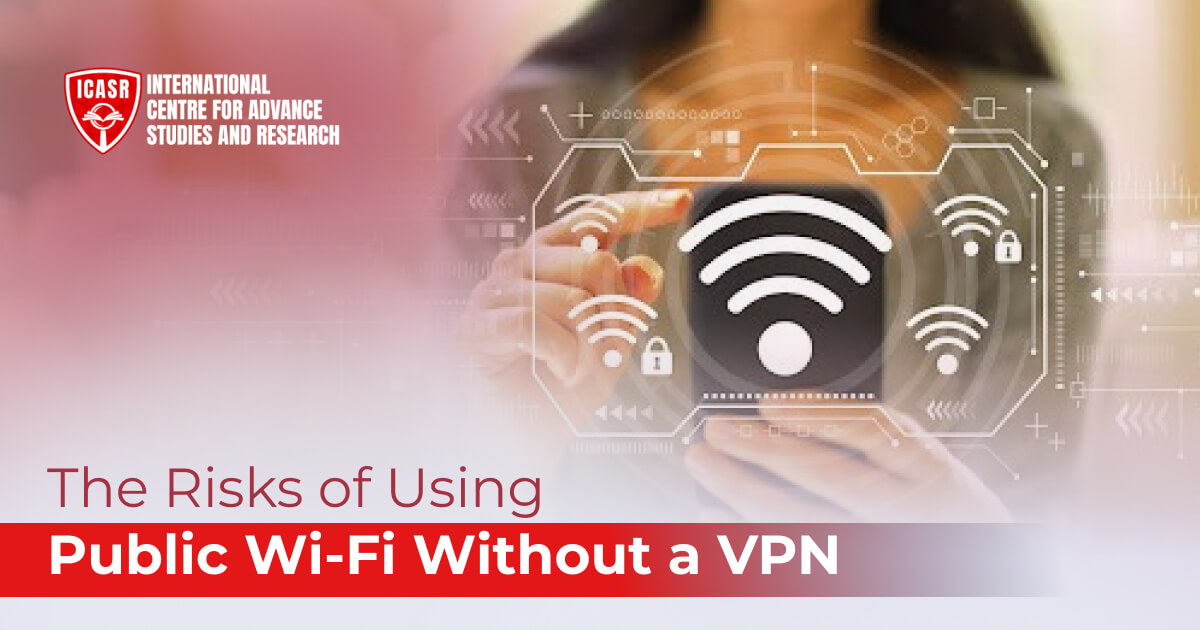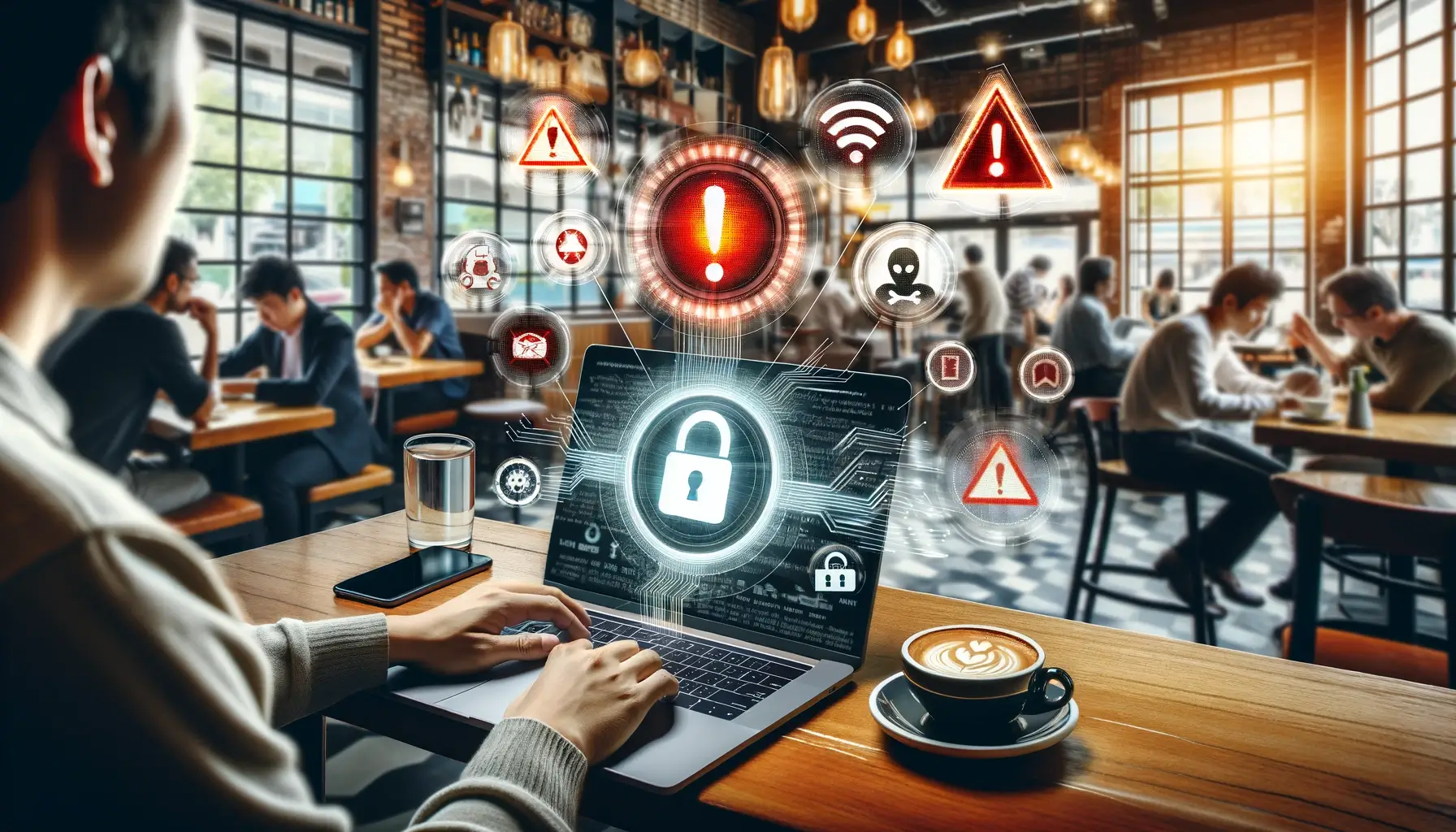"Public Wi-Fi networks are notorious for their lack of security. A VPN provides the necessary encryption to protect your data from cybercriminals." — IT Professional

With approximately 81% of people connecting their devices with free wi-fi on a daily basis, it seems to be a convenient and easy-to-go service to use the Internet. However, it's not as safe as it seems to be. Free or public wi-fi you might be using daily to cut down on your cellular data usage can be a playground for cybercriminals. Studies have shown that 40% of people put their devices at the risk's of public wi-fi by compromising their personal information to cybercriminals.
In a recent survey result, most people used public wi-fi when they had no cellular data left; other reasons were to use social media, watch Netflix and other OTT platforms, and for transactions in restaurants and hotels. This puts their vulnerable information in the wrong hands of cybercriminals. This article will help you understand the risks of public wi-fi without a VPN and how you can protect your personal data from hackers.
The Dark Side of Free Wi-Fi:
Usually, public Wi-Fi networks are not secured, which means the data transmitted from your device and the network can be unencrypted. This creates a loophole for hackers who can steal your data, infect your device with viruses, or, worse, hack your social media accounts. Here are some common risks of public Wi-Fi:
- Man-in-the-Middle Attacks: Cybercriminals can create fictitious Wi-Fi hotspots by emulating real ones, such as "Coffee Shop Free Wi-Fi." When you connect, the hacker's system unintentionally receives your data, giving them access to private data like bank account information and login credentials.
- Packet Sniffing: Data packets moving across an unprotected network can be intercepted by hackers using a technique called packet sniffing. Anything, from your browsing history to private messages, could be contained in these packets.
- Malware Distribution: Via public Wi-Fi networks, hackers can disseminate malware, or malicious software, which has the ability to steal data, harm devices, or even transform them into bots for additional attacks.
The Consequences of a Breach:
The results of data hacking while using public Wi-Fi can be more severe than one can imagine. Here are some of the outcomes:
- Identity Theft: A new/fake account can be made by using the stolen information, which may result in financial loss and a damaged credit score.
- Financial Fraud: All your financial information, like a bank account and credit/debit card details, can be passed on to hackers for unauthorized transactions.
- Data Loss: Photos, personal information, and emails can be compromised
- Reputational Damage: Stolen information can be used to create fake profiles or spread misinformation, affecting your online reputation.
Best Practices for Public Wi-Fi Usage:
You can lessen the risk of using public Wi-Fi by doing the following if you don't have a premium VPN membership:
- Turn Off File Sharing: Stop unwanted users from accessing your data by disabling file sharing on your devices. This covers sharing over Bluetooth as well.
- Keep Sensitive Transactions Away: Don't utilize credit card information, internet banking, or other personal information when using public Wi-Fi.
- Make Use of Two-Factor Authentication: To provide an additional degree of security to your accounts, enable two-factor authentication (2FA). By adding an extra step to the login process—typically a code texted to your phone—hackers will find it more difficult to access even in the event that they manage to steal your password.
How to Beware of Free Wi-Fi:
When using public WiFi, exercise caution and attentiveness. Here's how you can beware of free wi-fi:
- Unsecured Networks: Networks without password security or those with general names like "Free Wi-Fi" should be avoided. Real businesses usually provide password-protected, secure WiFi.
- Unknown Places: Avoid using public WiFi when you're not sure where it is. To be safe, it's recommended to stay away from joining if you have any doubts about the network's security.
- Handled with Care: Never use public WiFi to access credit card information, online banking, or any other sensitive data. A secure network at work or at home is a better place to do this.
- Employ a Mobile Hotspot: To offer a safe internet connection for your laptop or other devices, think about setting up a hotspot on your phone if you have a mobile data package. Bypassing public Wi-Fi completely makes use of your phone's data allotment.
- Be Wary of Public USB Connections: To prevent malware from infecting your device, do not charge your gadgets using public USB connections. Just picture someone trying to charge your phone and installing malicious software that takes your data! For a more secure option, always have a portable charger with you.
- Put firewall: An extra line of protection against malicious traffic on public networks can be offered by a strong firewall. As a gatekeeper, a firewall can filter and block incoming and outgoing communications.
Best Free VPN:
Free VPNs may seem like a good deal, particularly if money is limited. It's crucial to understand the restrictions before committing, though. The top free VPNs for 2023 are listed below for your use:
- PrivadoVPN Free: PrivadoVPN Free provides an excellent mix of functionality and speed. Although you are restricted to 10 servers across 12 countries, your data is unlimited. Additionally, only one device can be connected at once. On the other hand, PrivadoVPN Free works well for simple online streaming and surfing.
- ProtonVPN Free: Another best free wi-fi for casual users is ProtonVPN Free. In addition to a no-logging policy, you get limitless data. Though not strong enough for streaming, ProtonVPN Free is a decent choice for email and web browsing.
- Windscribe Free: Up to five devices can be connected simultaneously with Windscribe Free, which provides a substantial 10GB of bandwidth each month. Only a few nations' worth of servers are home to Windscribe Free, nevertheless. Although it's not a great choice for streaming, Windscribe Free is an excellent choice for email and casual online browsing.
The risk of public wi-fi being dangerous stands strong with its convenience. However, by understanding these risks and taking appropriate precautions, you can significantly enhance your online safety. By following some important steps, you can save your personal and important data from hackers.

